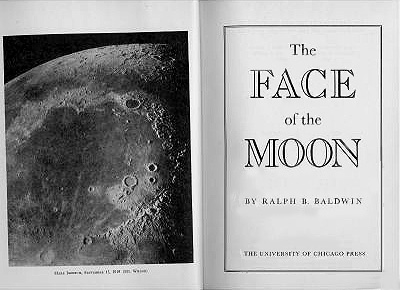Difference between revisions of "January 8, 2004"
| Line 44: | Line 44: | ||
<p align="center" class="main_titles"><b>Author & Editor:</b><br> | <p align="center" class="main_titles"><b>Author & Editor:</b><br> | ||
[mailto:tychocrater@yahoo.com Charles A. Wood]</p> | [mailto:tychocrater@yahoo.com Charles A. Wood]</p> | ||
| − | < | + | <!-- Cleanup of credits --> |
| − | + | <!-- Cleanup of credits --> | |
| − | < | + | <!-- Cleanup of credits --> |
| − | + | <!-- Cleanup of credits --> | |
| − | < | + | <!-- Cleanup of credits --> |
| − | + | <!-- Cleanup of credits --> | |
| + | <!-- Cleanup of credits --> | ||
<p> </p> | <p> </p> | ||
<!-- End of content --> | <!-- End of content --> | ||
{{wiki/ArticleFooter}} | {{wiki/ArticleFooter}} | ||
Latest revision as of 10:12, 6 June 2015
The Right Stuff in Lunar Science
|
|
|
The Right Stuff in Lunar Science In 1949 the University of Chicago published a small book that established the modern understanding of the Moon. The Face of the Moon was written by Ralph Baldwin, a PhD astronomer who worked full time in the family furniture-making business. Baldwin had become interested in the Moon while waiting to give a lecture at Chicago's Adler Planetarium. He was captivated by a large wall-mounted photograph of the Mare Imbrium region - one of the famous Mount Wilson photographs taken in 1919. Baldwin ultimately established convincing evidence that the lunar craters were formed by impact of cosmic projectiles and that the maria were lava flows filling the very largest impact structures - lunar basins. He saw that the Apennine Mountains and the Altai Scarp were the rims of the Imbrium and Nectaris impact basins. Nearly everything Baldwin concluded was correct - a remarkable achievement that made Baldwin a hero to most lunar scientists. Related Links:
Yesterday's LPOD: Petavius: Rilles & Volcanic Spots Tomorrow's LPOD: Posidonius: Rilles and Uplift |
Author & Editor:
Charles A. Wood
COMMENTS?
Register, Log in, and join in the comments.




